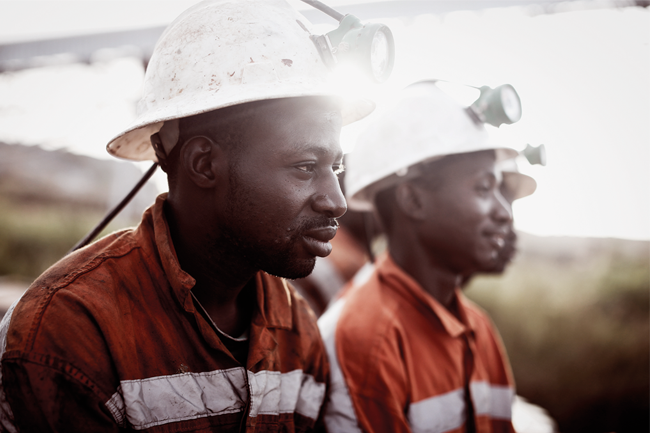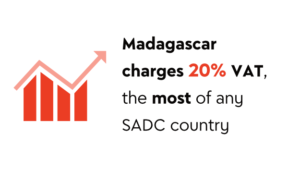The first harvest of organic tomatoes at a farm in Wedela, Gauteng presented a welcome good-news story for the embattled mining sector. There were smiles all around at the photo opportunity in April 2015.
Gold mining major AngloGold Ashanti teamed up with NPO Food and Trees for Africa and the Merafong City local municipality to train community members in organic farming near its West Wits operations.
As part of their CSI, the mining house is investing a figure of ZAR8 million over three years into the project, as outlined in its social and labour plan (SLP).
Other organic produce from this farm includes sugar beans, cabbage, onions, peppers and spinach. A supermarket in nearby Fochville has agreed to buy all the fruit and vegetables the emerging farmers may grow.
The project was started with basic farmer training and will shift its focus towards stepping up the production volume once key techniques are mastered. By the end of 2017, the participants should be familiar with commodity specialisation, cold chain distribution and food processing for markets. The long-term aim is to enable developing farmers to run and sustain their own commercial agri-businesses in the mainstream economy.
This is one example of the substantial contribution the mining sector is making to communities affected by it. The project is in addition to the employment of nearly 500 000 people with total earnings of ZAR102.1 billion, while also boosting the national economy with ZAR18 billion in tax payments.
Khanyisile Kweyama, executive director at Anglo American South Africa and CEO of Business Unity SA, addressed the reputation of the sector in her speech at the 2014 Mining Indaba: ‘It is wrong, too, to describe our industry as merely an extractives industry. Yes, our business is extracting minerals but it is also about so much more. We provide jobs. We build all manner of physical and social infrastructure – roads, railways, harbours and power, and also health and education.’
Many schools and clinics in South Africa would not exist without assistance from mining companies. A number of roads would not have been upgraded, and communities living in the host or labour-sending areas near the mines would still be waiting for access to electricity, water and sanitation.
The metals and mining sector is the largest contributor to CSI and socio-economic development expenditures in South Africa, according to findings by Integrated Reporting and Assurance Services in October 2014.
Of all firms listed on the JSE, the 33 mining companies had a combined CSI spend of ZAR3.9 billion, accounting for 46.4% of the total CSI spend (ZAR8.5 billion).
The mining industry has moved on from pre-1994, when it embodied socially and environmentally destructive practices, to becoming ‘a leader in implementing corporate social responsibility [CSR] initiatives, which has made the greatest financial contribution as a sector’, writes Busisipho Siyobi in a policy briefing by the South African Institute of International Affairs. She adds that ‘CSR has been treated as a vehicle for restorative justice to redress the legacy of apartheid’.
The mining industry has moved on from pre-1994, to becoming ‘a leader in implementing corporate social responsibility initiatives’
AngloGold Ashanti senior media and communications specialist Chris Nthite says his company takes this mandate seriously: ‘One of our values is to leave the communities and societies in which we operate better off for AngloGold Ashanti having been there. Despite the challenges faced by the mining industry precipitated by lower commodity prices and increasing costs, we continue to contribute and to invest in our host and labour-sending communities as per our commitments in the social and labour plans.’
The Minerals and Petroleum Resource Development Act requires mining companies to come up with detailed SLPs to outline their contribution to local economic development in the geographic area of their specific operations during a five-year period. On top of this, there are the licence-to-operate obligations such as housing provision as well as enterprise and skills development.
Some, but not all of these commitments, count towards a company’s CSI effort. Which ones? Well, that depends on whom you ask. ‘There is no mandated definition or list of inclusions, so different mining companies include different elements,’ says Cathy Duff, director at Trialogue, publisher of the authoritative annual CSI Handbook.
According to Duff: ‘Trialogue defines CSI as contributions external to the business for the primary purpose of development. This includes the socio-economic development pillar of the BBBEE codes – but not the enterprise and supplier development pillar – as well as the local economic development portion of the SLPs – but not all of the housing and skills development elements.
‘So we define it as a portion of the SLP and BBBEE requirements as well as any additional expenditure or volunteering directed at uplifting communities,’ she says.
As the pressure on the mining sector mounts – low commodity prices, the weakening rand, high input costs, rising expectations from the workforce and communities, to name but a few – companies are still meeting their CSI commitments, especially those regarding their SLPs.
This proves how deeply entrenched these commitments are, because if CSI were simply a nice-to-have, it would be the first thing to go in these tough economic times.
Philippe Mellier, CEO of De Beers, has explained why community development is so paramount: ‘Our view is that host countries have a right to demand value from the natural resource that has brought wealth to others, and mining companies have a duty to deliver it. These days, reputable miners want to assist host countries and their people, as well as their own balance sheet.’
Meanwhile, Duff says: ‘Mining companies are undoubtedly under pressure and we may see a more pronounced impact on CSI expenditure in the coming year as profitability declines.
‘However, of the 19 large mining companies whose South African CSI expenditure was published and tracked by Trialogue in 2015, only seven reported a decrease in expenditure between the 2013/14 and 2014/15 financial years. In fact, total expenditure across the 19 companies increased by 16% during the year.’
And there is more good news. The mining sector compares favourably with other sectors when it comes to reporting CSI and socio-economic development issues.
In Trialogue’s 2014 CSI reporting barometer, four out of the 12 companies that achieved a ‘good’ rating for reporting were miners, and only three of the 19 with a ‘poor’ rating were from the sector.
‘Like all other sectors, mining companies could improve their measuring and evaluation of CSI programmes but we have seen progress in this regard too.
‘In the past two years, Anglo Platinum has conducted an extensive review of its education programmes, Exxaro conducted a social return on investment analysis and Implats continued to have the majority of its CSI projects externally reviewed,’ says Duff. There has been another positive trend in the CSI landscape. Some mining companies are becoming more open to partnerships and community involvement.
Duff feels initiatives that stand out are those that try to tackle systemic issues. ‘For example, there are a number of producer forums that have been established to promote collaboration and co-ordination between mining companies and government on infrastructure initiatives in specific geographies.
‘There have also been mining companies that have supported local municipalities with training and specialised skills in order to build the capacity of the relevant authorities,’ she says.
Anglo American, for instance, started implementing a ZAR120 million, three-year Municipal Capacity Development Programme in 2014. Together with the Investment Climate Facility for Africa and the Development Bank of Southern Africa, the mining group intends to directly improve the conditions of selected local communities in the Eastern and Northern Cape, Limpopo, Mpumalanga and North West.
Kweyama said at the launch: ‘Our aim is to assist government to create fully functional and sustainable municipalities that are capable of delivering distribution of good quality basic services such as water, sanitation and electricity infrastructure – cost effectively and efficiently.
‘This initiative offers benefits for all stakeholders, including Anglo American, allowing us to invest further.
‘Reduced pressure on all collaborative organs within our stakeholder universe will free our corporate social investment budgets to focus on activities that leverage our core competencies.’
She explained that a functioning municipality would support a stable local economic environment, while in turn create a suitable business climate at municipal level.
This would provide a foundation for entrepreneurship and new businesses, which could help the group achieve higher levels of local employment and local procurement.
Duff says: ‘Although projects tackling systemic issues are much more difficult to manage and success is not always likely, if they do succeed they have a much wider-reaching impact.’
Whatever route the various mining houses choose, it’s vital that their CSI makes a measurable impact, together with a genuine return on their social investment.
By Silke Colquhoun
Image: Gallo/GettyImages
















